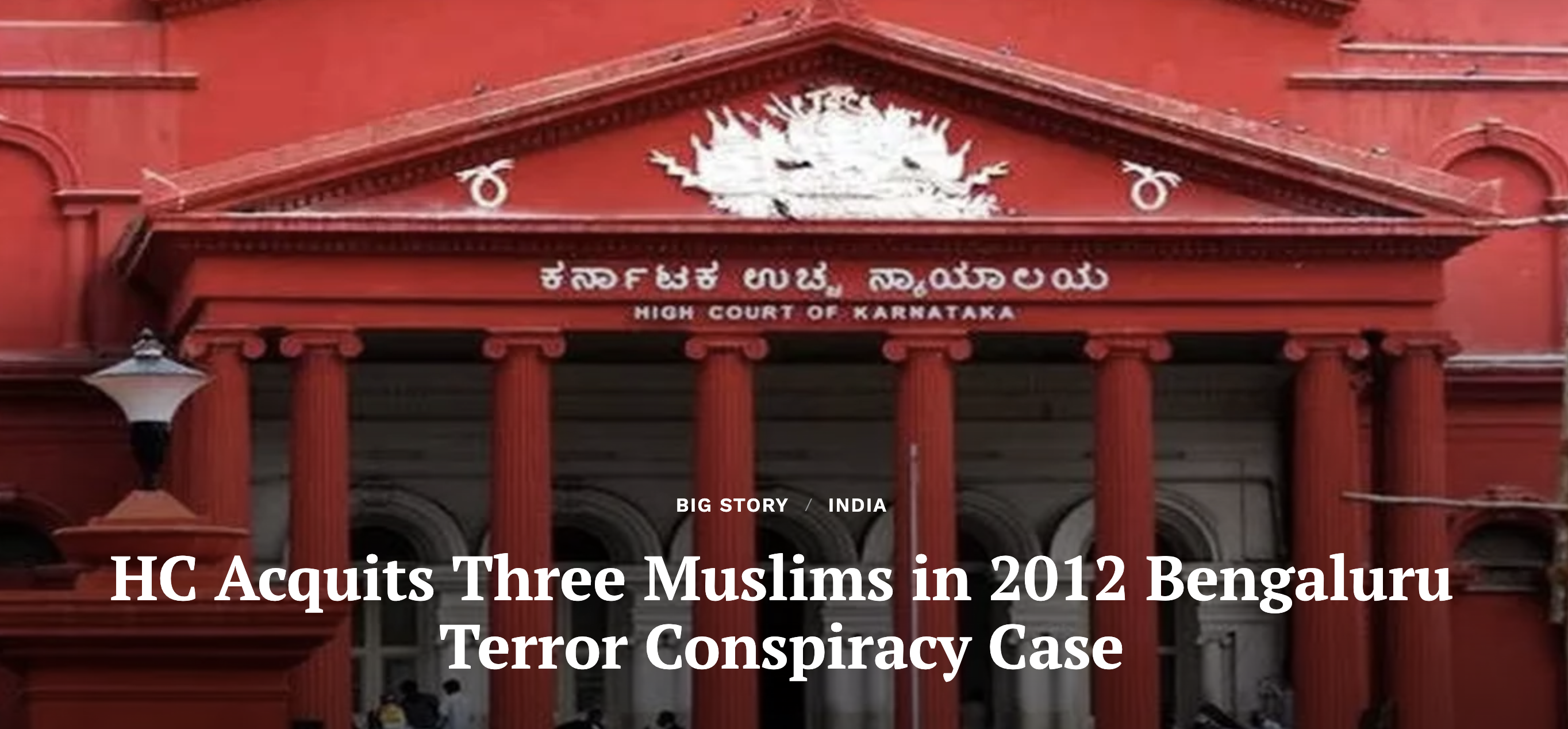
Team Clarion
BENGALURU – In acquitting three Muslims, including a Pakistani national, serving life sentences in the 2012 Bengaluru terror conspiracy case, the Karnataka High Court on Wednesday found a procedural flaw in the prosecution sanction granted by the state government.
A division bench, consisting of Justice Sreenivas Harish Kumar and Justice J M Khazi, acquitted them from charges under the Unlawful Activities (Prevention) Act (UAPA) related to the conspiracy allegedly plotted inside Bengaluru central prison, a PTI report said on Thursday.
The accused – Syed Abdul Rehman from Bengaluru, Afsar Pasha alias Khushiruddin from Chintamani in Kolar district, and Mohammed Fahad Khoya from Karachi, Pakistan – were charged under various provisions of the UAPA and the Indian Penal Code (IPC).
However, while acquitting them of these charges, the court upheld Rehman’s conviction under the Arms Act, of 1959, and the Explosive Substances Act, of 1908.
Rehman was found guilty of illegal possession of a revolver and concealing explosives, leading to a revised sentence of 10 years imprisonment, the report said.
The division bench allowed the petitions filed by Pasha and Khoya challenging their 2023 conviction and life imprisonment sentence.
However, the bench only modified Rehman’s conviction under the lesser offenses of the Arms Act and Explosive Substances Act.
The court found that the sanction for prosecution was flawed. The principal secretary to the Home Department at the time, Raghavendra H Auradkar, admitted during cross-examination that he could not recall whether an independent review committee was involved when he granted the sanction.
This story was originally published in clarionindia.net. Read the full story here.

